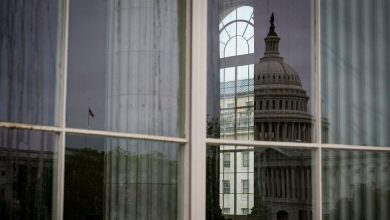Administration Urges Colleges to Pursue Diversity Despite Affirmative Action Ban

The Biden administration, in its first guidance on how to handle the Supreme Court’s ban on affirmative action, offered colleges and universities on Monday something of a road map for how to achieve diverse classes while abiding by the court decision.
The administration said schools still had broad latitude when it comes to expanding its pool of applicants, through recruitment, and retaining underrepresented students through diversity and inclusion programs, like affinity clubs.
Education Secretary Miguel Cardona, in a news briefing, made it clear that the administration faced the task of enforcing a court ruling that it strongly disagreed with. “This is a moment of great urgency in higher education,” Dr. Cardona said.
Alluding to how the enrollment of students of color had initially plunged in states that have banned affirmative action, he said, “We cannot afford that kind of backsliding on a national scale.”
The guidance from the Education and Justice Departments — in what is known as a “Dear Colleague” letter, accompanied by a questions-and-answers document — did not address some of the more contentious issues around the court’s decision, including how it would apply to hiring, student scholarships for particular racial groups and potential conflicts between state and federal policies.
The administration’s letter urged colleges to maintain or create pipeline programs to prepare and recruit a diverse student body. It said the court’s decision “does not require institutions to ignore race when identifying prospective students for outreach and recruitment,” as long as all students, whether targeted or not, “enjoy the same opportunity to apply and compete for admission” into the recruitment programs.
Conservative activists have threatened to challenge any recruitment methods that could be seen as a proxy for consideration of race. But the Biden administration’s letter endorsed recruiting students through targeted characteristics — including whether they live in a city, suburb or rural area, their family background, experiences of adversity including discrimination, and whether the students speak more than one language.
At least one critic of racial preferences found the guidance on outreach to be fair.
“I actually think it’s a good idea to target racial groups that have been historically underserved by an institution and try to find ways to increase the chance of applying,” said Richard Sander, a law professor at the University of California Los Angeles.
He said it was unlikely that anyone would challenge such a program, “and if they did, you’d have a pretty good chance of surviving, because it’s separated from the admissions process.”
The letter and seven pages of questions and answers did not directly address certain other questions — both within and beyond academia — that have been raised by the Supreme Court decision, including whether schools could continue to offer scholarships that selected winners based at least in part on their race, and which have been an engine of diversity in college admissions.
Nor did the guidance address potential conflicts between policies being created by state authorities and those being articulated at the federal level.
Immediately after the Supreme Court decision was handed down on June 29, Andrew Bailey, the Missouri attorney general, wrote to dozens of universities and municipalities across the state, including the University of Missouri system, warning them to immediately end race-based affirmative action policies. The letter said the directive applied not just to college admissions but also to scholarships, employment and law reviews.
Republican leaders are challenging minority scholarship programs in Wisconsin, and Eli Capilouto, president of the University of Kentucky, has suggested that scholarships there could be affected by the ruling.
And the attorneys general of 13 states, including Alabama, Arkansas and Kansas, have warned chief executives of Fortune 100 companies that their companies would face “serious legal consequences” if they pursued race-based employment preferences and diversity policies.
The Biden administration’s letter also broadly endorsed diversity, equity and inclusion efforts on campus, which have been heavily criticized by conservatives who call them expensive liberal boondoggles.
“It is important that students — particularly those who are underrepresented, feel a sense of belonging and support once on campus,” the administration’s guidance said. Schools could build this sense of belonging through diversity offices, campus cultural centers and affinity groups, “including those that have a race-related theme,” as long as they were open to all students regardless of race, it said.
The letter may provide encouragement to critics of legacy admissions, the preferences some institutions give to the children of alumni, which critics have called affirmative action for the rich. Critics say legacy students take up slots that could have been awarded to qualified students without connections.
“Nothing in the decision prevents an institution from determining whether preferences for legacy students or children of donors, for example, run counter to efforts to promote equal opportunities for all students in the context of college admissions,” the letter said.
“Dear Colleague” lettersdo not have the force of law. But they can be powerful and politically charged nonetheless. An example is a “Dear Colleague” letter in 2011 that expanded the protections of Title IX — the federal education law that forbids discrimination on the basis of sex — to cover sexual harassment and violence.
That letter outlined the procedure for campus investigations into sexual assault. It was rescinded during the Trump administration after critics, particularly the mothers of accused men, contended that it created a process that was biased toward accusers.



